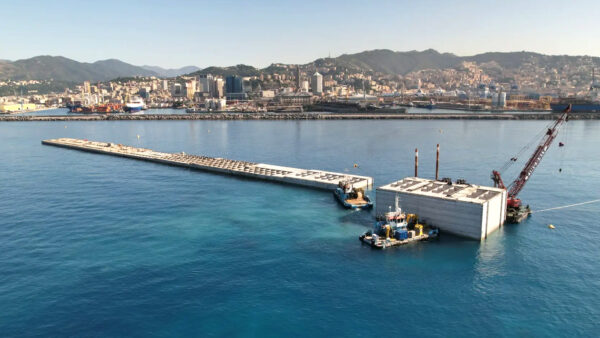A $1.7bn electricity transmission line on the China-Pakistan Economic Corridor (CPEC), which was begun in December 2018, was inaugurated in a ceremony held in Islamabad and Beijing at the end of last month.
The 660kV Matiari-Lahore high-voltage direct current line will provide Pakistan’s national grid with a new backbone and improve chronic problems with the country’s energy transmission and distribution grids.
The 878km line was financed and built by the State Grid Corporation of China, which will operate it for the next 25 years.
More than 1,300 Chinese and 6,500 Pakistani workers were employed on the scheme.
Hammad Azhar, Pakistan’s energy minister, said the project would bring stability to the country’s power system. Speaking at the online ceremony, he said the project would “enhance transmission capability and bring relief to consumers”.
Electricity generation in Pakistan has increased dramatically in recent years, thanks to the large-scale construction of mainly coal-fired plants funded by China.
As a result the country has an installed capacity of around 37GW and peak demand of only 25GW, although this is growing at a rate of about 5% a year. However the grid is able to handle only 22GW of power, resulting in chronic blackouts and load shedding, particularly in the summer when demand is highest.
However, problems occur in winter as well. In January of this year, the entire country suffered a blackout after a fault at a power station in southeast Sindh province caused the grid to lose its 50Hz frequency, which caused power stations throughout the country to close down.
This makes the reinforcement of the grid, arguably, the single most important infrastructure scheme for the country’s socio-economic development.
Zhang Jianhua, head of China’s National Energy Administration, told those present at the ceremony that the Matiari-Lahore line was the first large-scale transmission project of the CPEC, and would provide “solid assurance” for power transmission in the south and power supply in the north.
Speaking about the economic corridor in general, Azhar added: “The CPEC is of utmost importance for Pakistan. It will enable the country to enhance industrial production, upgrade energy and communication infrastructure and improve connectivity within the region.”
Of Pakistan’s 207 million people, roughly 58 million lacked access to grid electricity in 2018, including 46% of the rural population.
Image: Power lines in Karachi. Pakistan’s grid is vulnerable to chronic blackouts and load shedding (HovaHe/CC BY-SA 2.0)Â
Further reading:






